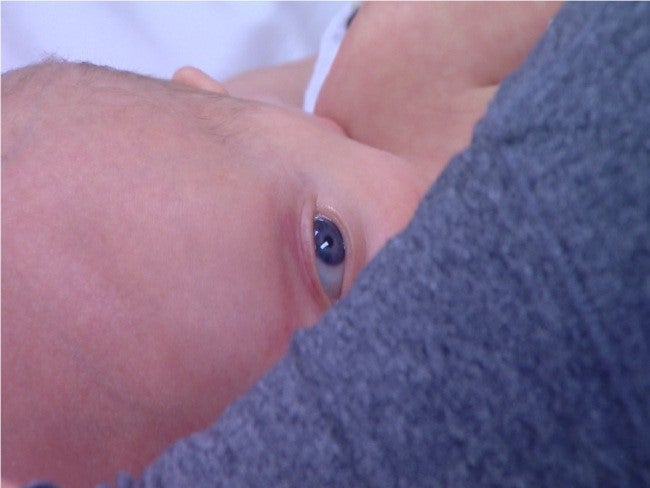Indiana breast-feeding numbers remain below national average
INDIANAPOLIS (WISH) — August is Breast-feeding Awareness Month and medical experts in our area say Indiana is behind the curve.
Doctors recommend babies be exclusively breast-fed for at least the first six months of life. Eight in ten moms will start out breast-feeding, but nationally only 22 percent will make it to the six-month mark. In Indiana, that number is only 16 percent.
Dr. Emily Scott is the newborn medical director at IU Methodist. She says one big reason mothers aren’t successful at breast-feeding is due to insecurities and moms not trusting their own bodies.
“Moms kind of come in with a typical idea of how breast-feeding is going to go and it’s different than that. There is a lot of work that has to go into the first couple days and teaching the baby how to latch on well. Moms are often very concerned about how much milk they produce as well and that can get reinforced by family members or friends who haven’t had breast-feeding experience in the past,” Dr. Scott said.
She encourages new mothers to take advantage of their hospital’s lactation consultant in the first days after delivery and beyond, if needed. Also, continue to work with your pediatrician and tap into breast-feeding support groups, which most central Indiana hospitals provide for free.
Returning to work can also be a big hurdle, so know about breast-feeding options protected by the law. All moms should have a private space to pump breast milk with a sink, that is not a bathroom. If your work place does not provide that, don’t be afraid to ask for it.
For mothers with babies in the NICU, the odds are really stacked against them.
At IU Health’s Riley Hospital for Children, there’s a high-tech milk lab to help moms with breast-feeding goals. Many babies in the NICU will not be able to physically breast feed.
The Milk Lab is a one-stop shop to find lactation supplies, bottles and also drop off pumped breast milk. Inside staff mix and prepare breast milk, formula, and recipes specific for each baby so nurses can focus on caring for baby.
“It starts out slow, maybe skin-to-skin, but as soon as they graduate up and get better and maybe healthier and stronger, we can start initiating that breast-feeding, so it might start with a feeding tube or a bottle, but we can graduate and still get back to breast-feeding and moms goals,” Megan Glen, manager of the eternal feeding program at Riley Hospital for Children, said.
The Milk Lab opened at Riley about four years ago. It also serves IU Methodist and IU North.
